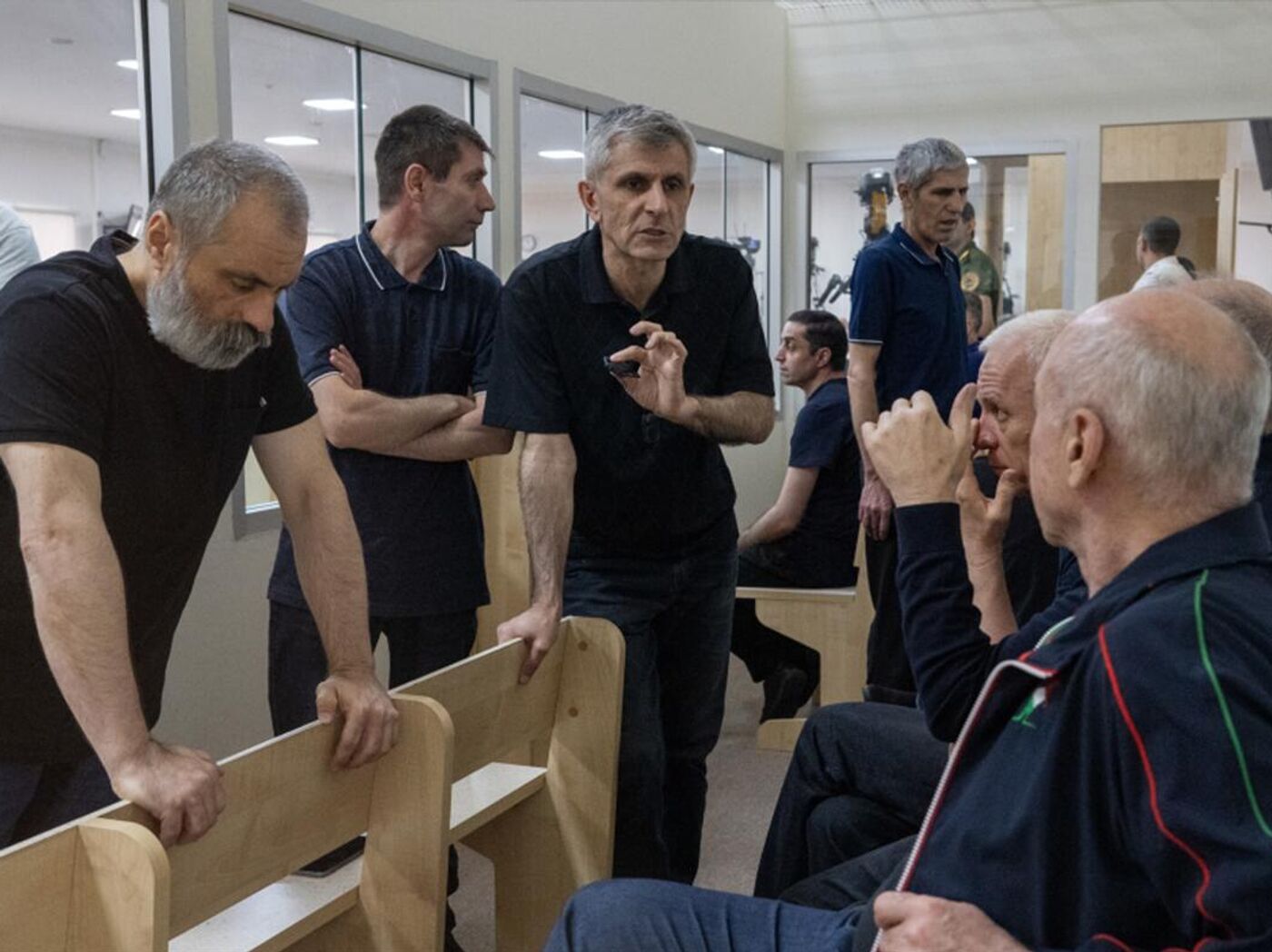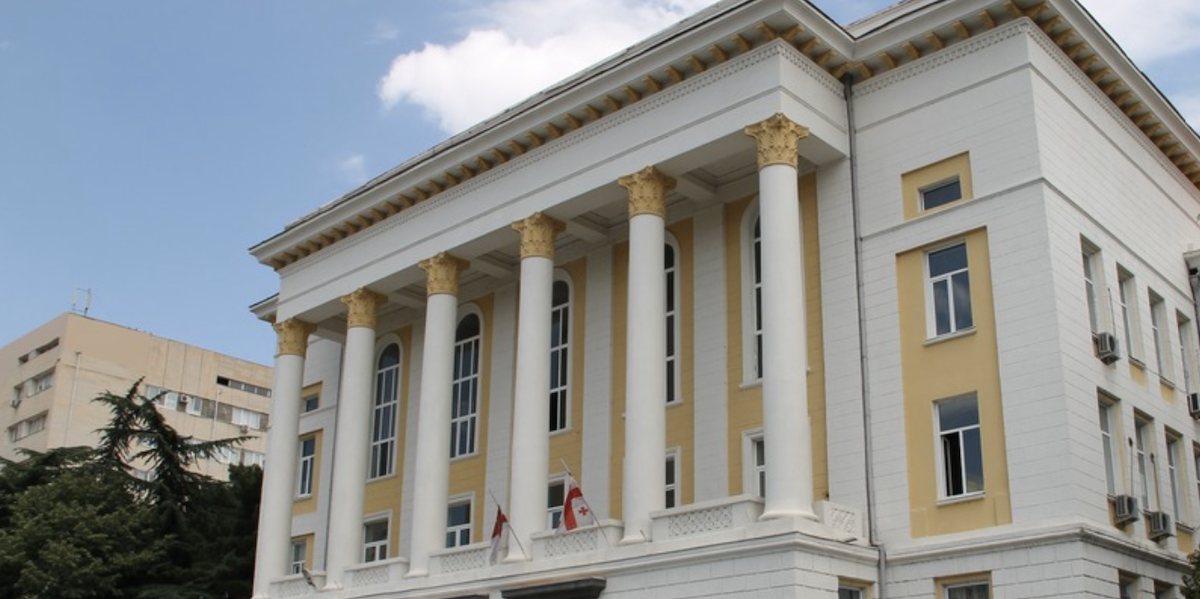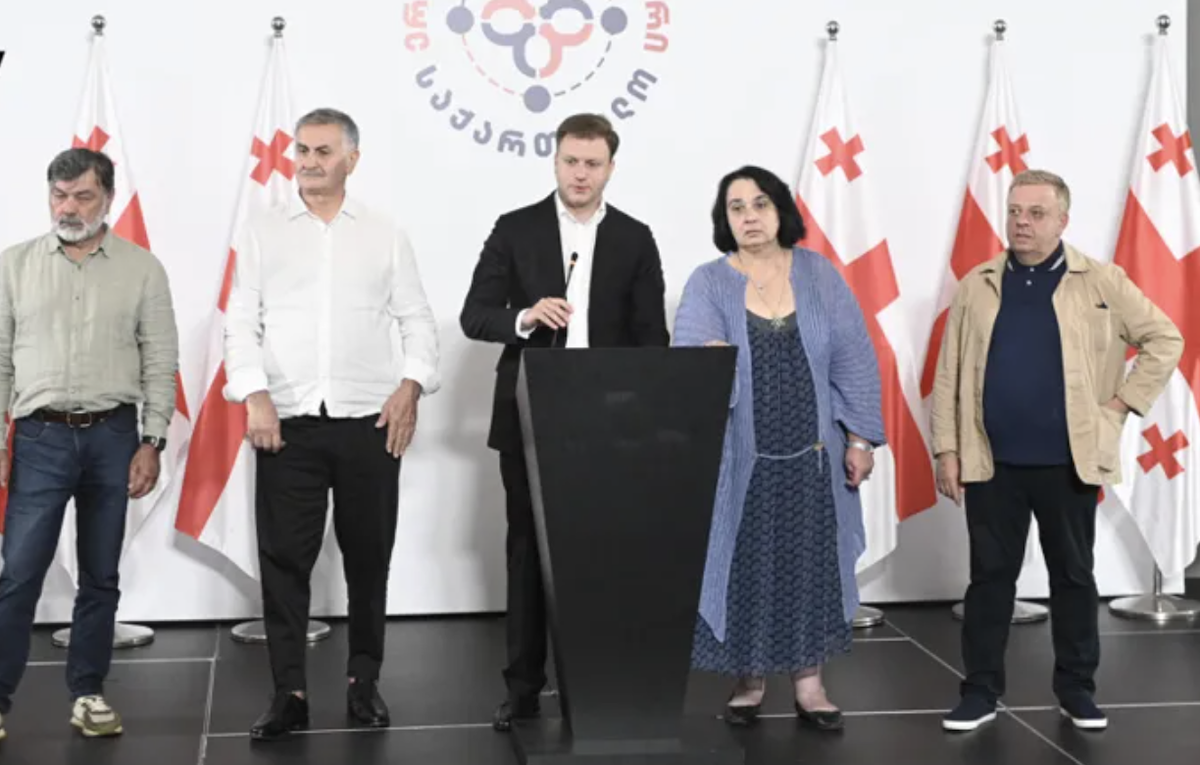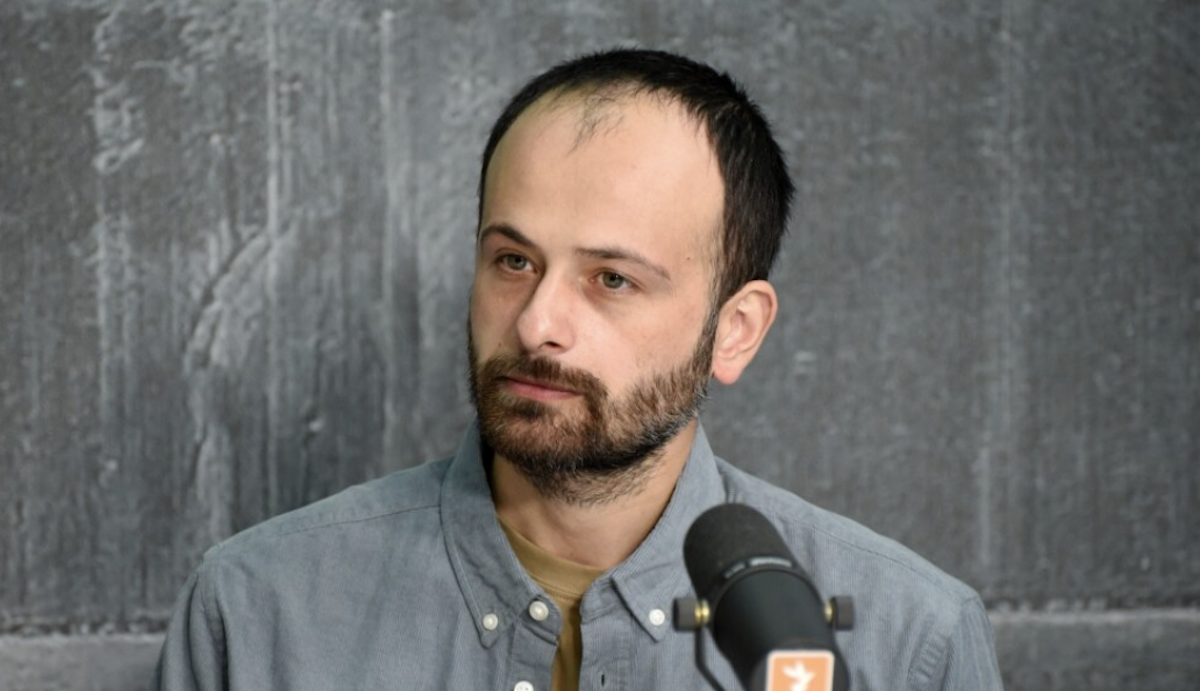Russian propaganda celebrates victory of Georgian Dream and defeat of 'revolution'
On 4–5 October, Kremlin propagandists received two pieces of good news from Georgia: the ruling party, Georgian Dream, won the local elections, while a protest staged as a “peaceful overthrow of power” failed.
In this article, we examine how Russian propaganda covered the events of 4 October.
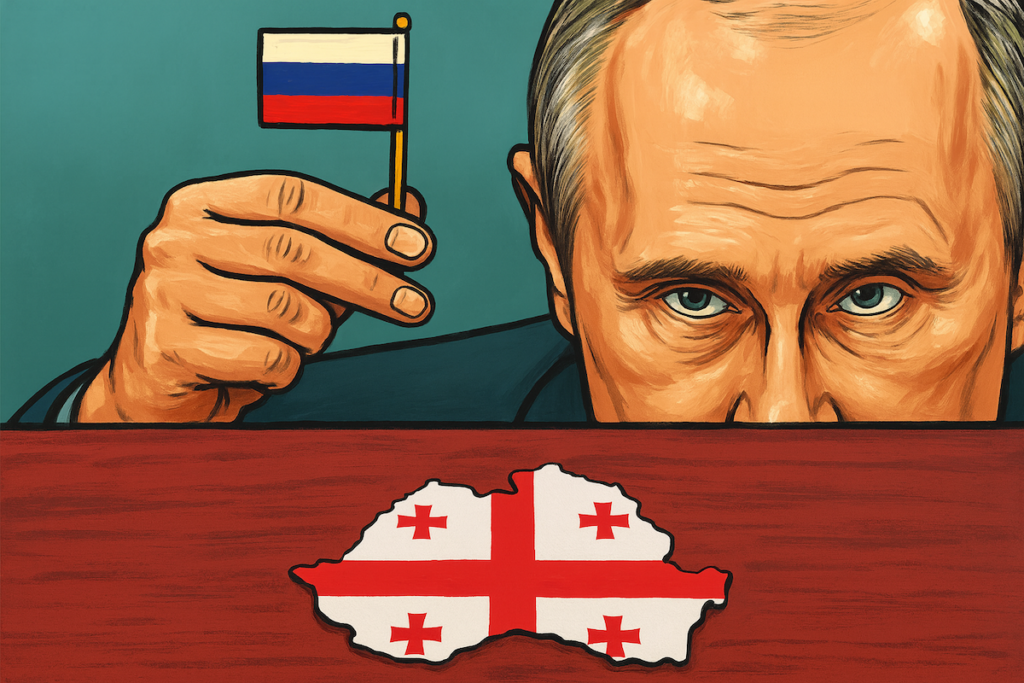
Georgia’s Prime Minister Irakli Kobakhidze accused the EU ambassador in the country of being “responsible” for the storming of the presidential palace in Tbilisi. Russian propaganda immediately echoed his words, almost verbatim.
By the morning of 5 October, pro-government Russian TV channels were broadcasting about the failure of a “Western-backed coup” in Georgia.
“It seems neither the West nor its Georgian proxies are going to calm down,” said a correspondent for the state channel Rossiya, reporting from Tbilisi.
Another major Russian channel, NTV, claimed that the EU has been “persistently trying to implement a Ukrainian scenario here for more than ten years,” but is still “quickly losing Georgia.”
Kobakhidze’s remarks were also warmly received by Russian officials. Senator Alexey Pushkov described them as “evidentiary accusations,” while Leonid Slutsky, chairman of the State Duma’s Foreign Affairs Committee, said the EU ambassador had “demonstrated the gold standard of interference.”
“‘Maidan playbooks’ of the collective West never go out of style,” Slutsky wrote on Telegram.
Z-propaganda backs ‘Georgian Dream’
The same talking points were repeated on Telegram by Russian military propagandists.
For nearly four years, so-called “Z-bloggers” have been convincing Russians that the Kremlin invaded Ukraine to protect Russian-speaking populations.
These bloggers also frequently defend the ruling Georgian Dream party.
“The methodology is standard. As always, the West needs blood. Without a ‘sacred victim,’ the Maidans don’t spin,” wrote Z-blogger Yuri Kotenok.
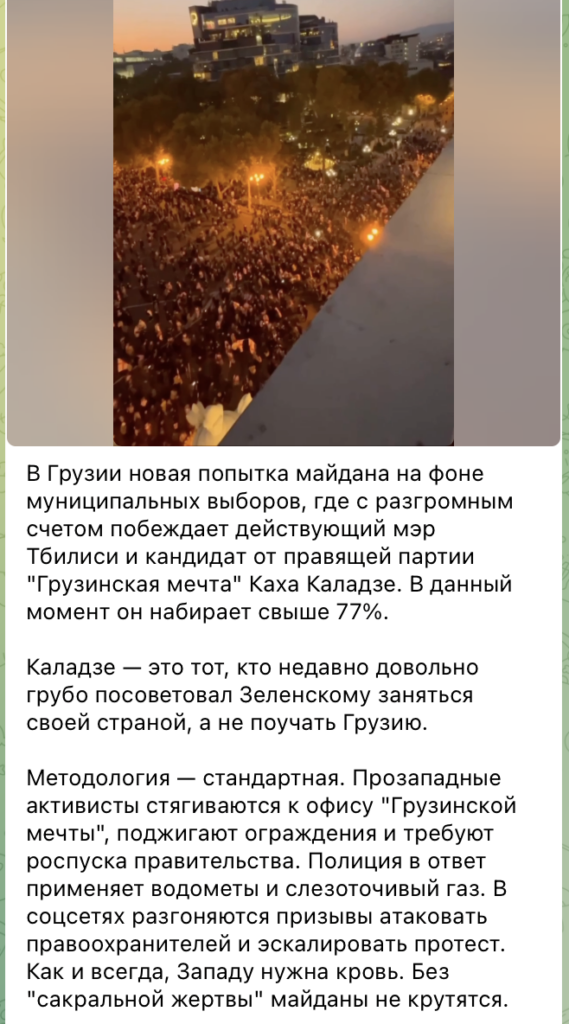
Another Z‑blogger, Mikhail Zvinchuk — whose Telegram channel has nearly 1.5 million followers — welcomed that Georgian security forces now have a “legal pretext to disperse rallies” and that the government can begin a “cleansing of opponents.”

“Georgia is on the right track. It is now building relations with Russia on mutually beneficial and partnership-based principles. At the same time, it does not allow ‘Euro-fools’ to interfere in its internal affairs and dictate what to do and how,” praises the anonymous Telegram channel Zapiski Veterana (“Notes of a Veteran”).
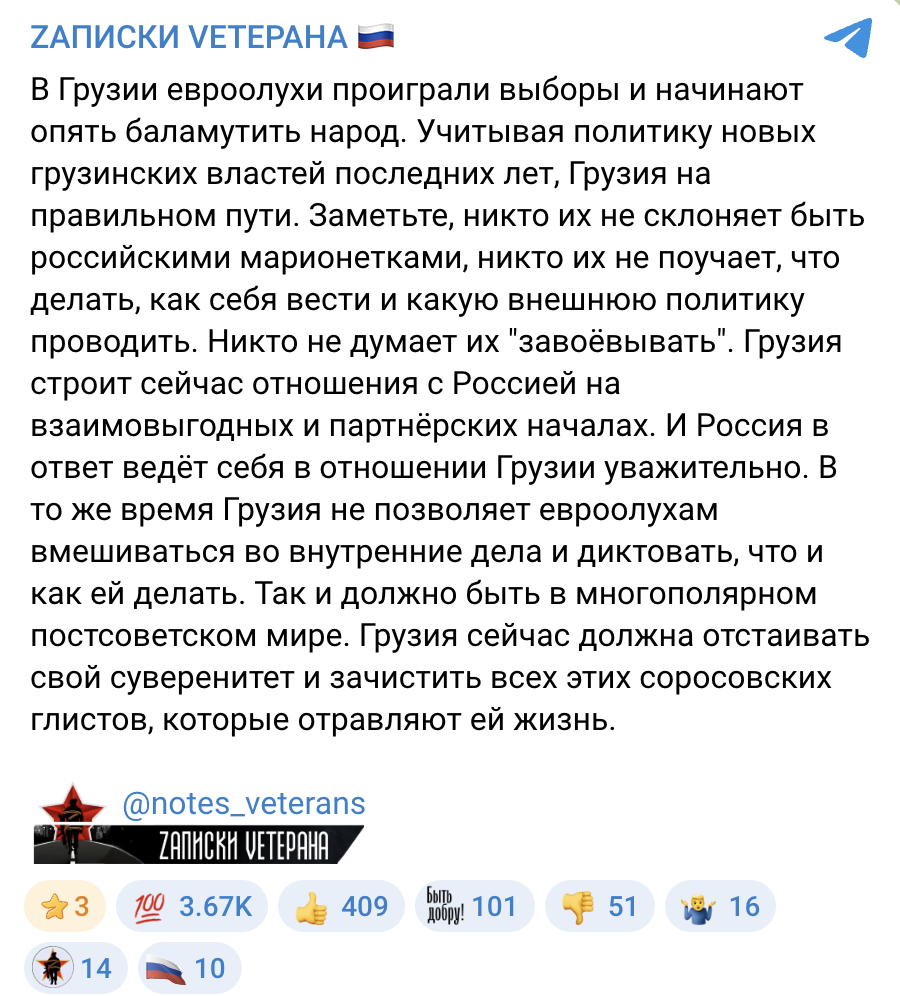
According to another prominent military propagandist, Boris Rozhin, the ruling party’s victory in the municipal elections means that Georgia “will continue to maintain a stance of cold neutrality and fight for limited sovereignty.”
“Russia is perfectly fine with that,” Rozhin adds.
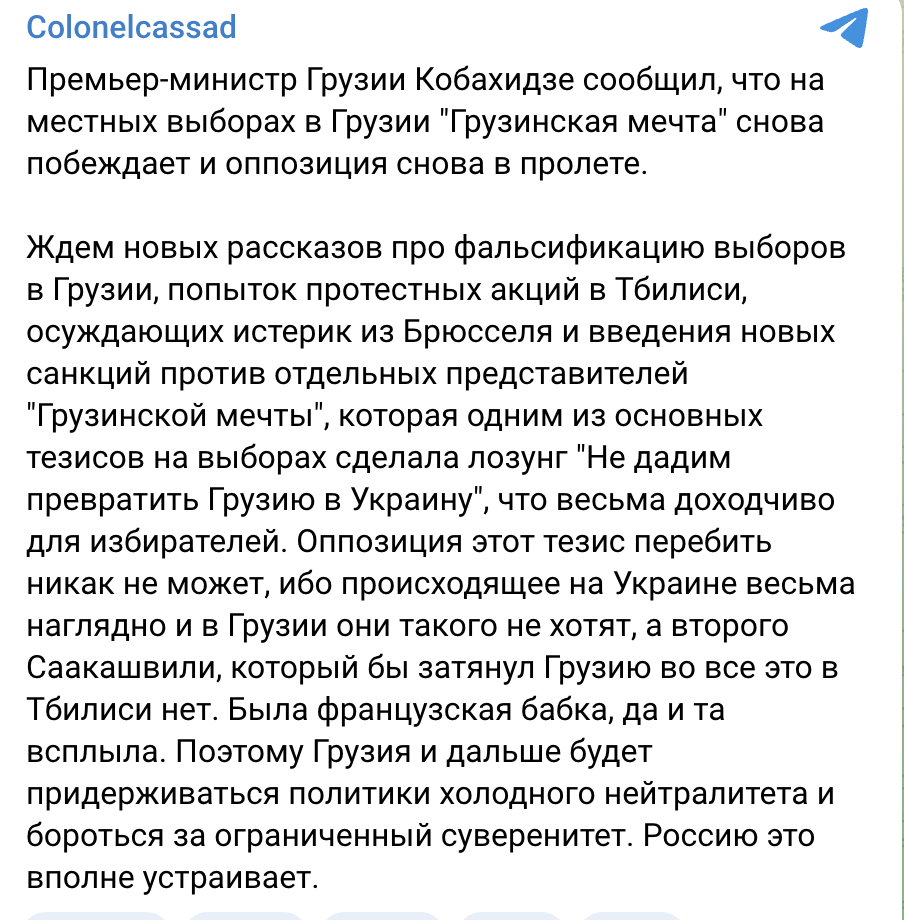
‘Possible coordination’
Since the start of the war in Ukraine, Russian propaganda has noticeably increased its support for “Georgian Dream.”
The Kremlin’s narratives and those of “Georgian Dream” often echo each other almost word for word.
For example, over the past four years, the Russian Federal Security Service has five times warned of an inevitable foreign-backed coup in Georgia, while representatives of “Georgian Dream” frequently refer to Ukraine’s 2014 Maidan, which ended the rule of the pro-Russian Viktor Yanukovych.
The similarity between the rhetoric of “Georgian Dream” and the Kremlin was recently examined by the EU-funded EuVsDisinfo project, which studies disinformation. According to their report published in late August 2025, Kremlin propaganda and “Georgian Dream” “develop identical narratives” and “use similar tactics,” indicating “not only a strong alignment of interests but also possible coordination.”
Regarding the events of 4 October in Tbilisi, the EU rejected Kobakhidze’s allegations.
“Brussels condemns disinformation about the EU’s role in Georgia and denounces personal attacks on the EU ambassador,” said European Commissioners Kaja Kallas and Marta Kos in a joint statement.
Russian propaganda on Georgia










